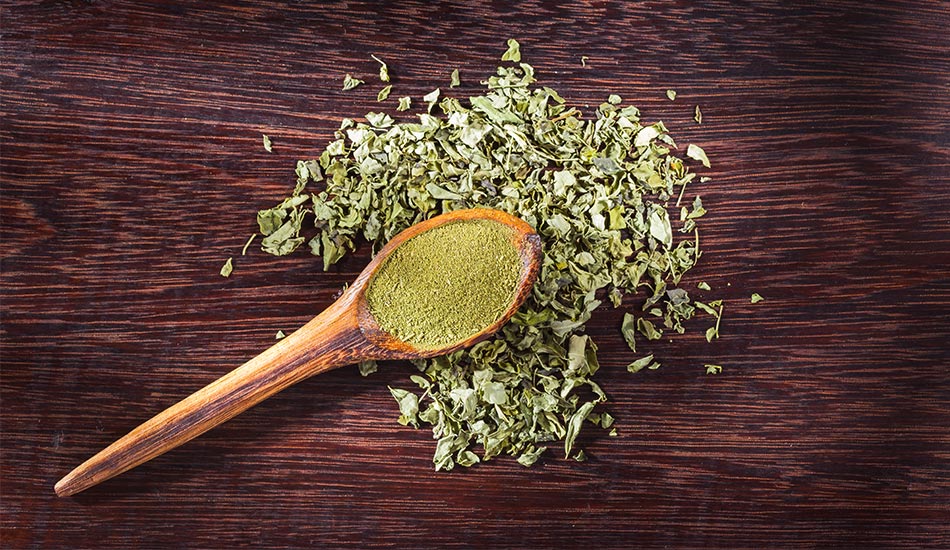- Home
- Treatment
Treatment Designed for You.
Get in touch with Absolute Awakenings today and begin your journey to long-term healing & recovery. - What We Treat
Get help today, start your journey!
An Experience in Healing
Get in touch with Absolute Awakenings today and begin your journey to long-term healing & recovery. - About
The Rehab You've Been Looking For
Get in touch with Absolute Awakenings today and begin your journey to long-term healing & recovery. - Tour
- Resources
Resources
How Outpatient Rehab Helps Treat Alcohol and Drug Addiction
February 6, 2026What Comes After An Alcohol IOP Program? Aftercare Options Explained
January 30, 2026Don't Wait Another Day.
Get in touch with Absolute Awakenings today and begin your journey to long-term healing & recovery. - Admissions
The Rehab You've Been Looking For
Get in touch with Absolute Awakenings today and begin your journey to long-term healing & recovery. - Contact
(866) 627-0196
3000 NJ-10, Morris Plains, NJ 07950
admissions@absoluteawakenings.com
Schedule a Tour Now
Get in touch with Absolute Awakenings today and begin your journey to long-term healing & recovery.
Begin Your Journey Now
Begin Your Journey Now
- Home
- Treatment
Treatment Designed for You.
Get in touch with Absolute Awakenings today and begin your journey to long-term healing & recovery. - What We Treat
Get help today, start your journey!
An Experience in Healing
Get in touch with Absolute Awakenings today and begin your journey to long-term healing & recovery. - About
The Rehab You've Been Looking For
Get in touch with Absolute Awakenings today and begin your journey to long-term healing & recovery. - Tour
- Resources
Resources
How Outpatient Rehab Helps Treat Alcohol and Drug Addiction
February 6, 2026What Comes After An Alcohol IOP Program? Aftercare Options Explained
January 30, 2026Don't Wait Another Day.
Get in touch with Absolute Awakenings today and begin your journey to long-term healing & recovery. - Admissions
The Rehab You've Been Looking For
Get in touch with Absolute Awakenings today and begin your journey to long-term healing & recovery. - Contact
(866) 627-0196
3000 NJ-10, Morris Plains, NJ 07950
admissions@absoluteawakenings.com
Schedule a Tour Now
Get in touch with Absolute Awakenings today and begin your journey to long-term healing & recovery.
- Home
- What We Treat
- Substance Abuse
- Kratom
Kratom Addiction: Signs, Symptoms, Risks, and Treatment Resources
Kratom is not yet officially classified under the Controlled Substances Act. Official sources have discussed the possibility of the substance being considered a Schedule I drug, but this ruling has not yet been enacted. However, the use of this substance has increased over recent years, with around 1.7 million people using kratom in 2021 alone.[1]


What We Treat
We Accept With Most Major Insurance
If you or a loved one is ready to get help but finances are holding you back, give us a call. We can work with your health insurance provider.






Related Topics
Additional Resources for Kratom Addiction
Table of Contents
What is Kratom?
Kratom is a unique herb native to the humid climates of Southeast Asia. It has been used by natives for thousands of years, mostly for religious practices, but sometimes to give them a boost of energy. This herb has since become popular in the Western world, but it does have some concerning side effects and potential health risks.
Kratom is a stimulant, but it also has effects that are similar to opioids. Kratom use is associated with increased focus and an elevated heart rate. It may also act as a pain reliever and sedative, depending on the strain and the dose.
How is Kratom Taken?
Kratom is most commonly sold in capsules filled with crushed kratom leaves. These capsules are swallowed whole, and the kratom slowly dissolves into the person’s system. However, some people prefer to use loose-leaf kratom to make tea or to smoke the leaves.
Smoking the drug will create more instantaneous effects. Drinking or swallowing the leaves will take longer for the drug to work, around an hour. It is also possible to snort kratom, but this is not as common.
Kratom Addiction and Abuse
Those who use kratom are more likely to have histories of substance abuse compared to those who don’t.[2] Substance use disorder sufferers are more likely to misuse and develop a dependence on this substance. Misuse includes taking high doses, taking in unrecommended routes, or mixing with other substances.
Signs of Kratom Addiction:
Someone addicted to kratom may experience cravings, body aches, diarrhea, or feel sick if they go without taking it for long periods. Some people may also experience excess weight loss, sweating, or stomach pain.
Effects of Kratom Abuse
Many people use kratom for its supposed anxiety-relieving effects. Some people find they experience calm, while others report no difference in their anxiety. Others may take the substance for pain relief.
Kratom’s stimulant effects are more apparent than other possible effects and can lead to a burst of energy and an increased heart rate. However, some people have experienced several mental symptoms while taking this drug as well. These mental symptoms include psychosis, depression, paranoia, and delusions.
Side Effects of Kratom:
While some might not experience any kratom side effects, others may instead experience very serious ones. Common side effects include chills, weight loss, dry mouth, and vomiting. In more severe cases, kratom may lead to liver damage and other consequences inside the body. While using this herb may seem relatively innocuous, it can lead to serious abuse and addiction.
Dangers of Long-Term Kratom Use
Weight loss is a common long-term effect due to the way stimulants suppress the appetite. Many people experience constipation, and people may be more at risk of developing anorexia while taking this substance. Others may experience hyperpigmentation, especially on the face, along with nausea and stomach problems.
Can You Overdose on Kratom?
Yes, kratom is associated with overdoses. However, the majority of these overdoses occur when kratom is mixed with other substances. There are very few recorded instances in which people have overdosed on kratom alone, though it is possible. An overdose is more likely when taking large doses of kratom at once or by snorting it, which can also increase the risk.
Signs and Symptoms of Kratom Overdose
A fast heart rate is one of the most common overdose symptoms for stimulant drugs. People may also experience mood changes, anxiety, irritability, nausea, and chills. In more severe cases, it is possible to have seizures or enter a coma.
What to do if you suspect someone is overdosing on Kratom:
You should treat any overdose as a medical emergency. Stay with the person and make sure they’re breathing. Call for medical help and wait for it to arrive. Try to keep the person calm and safe in the meantime.
Statistics on Kratom Use, Misuse, and Addiction
Not many comprehensive studies have been conducted on the misuse and addiction potential of kratom use, but it has been associated with overdose. Out of 27,337 overdose deaths over a 2-year period, 152 of them tested positive for kratom.[3] These kratom overdoses were almost always linked to the consumption of other dangerous substances along with the kratom itself.

Mixing Kratom with Other Drugs
Like other stimulants, kratom should not be mixed with drugs or alcohol. Stimulants increase nervous system function, and mixing them with other substances can intensify the effects and lead to an overdose.
Kratom Withdrawal
Withdrawal symptoms can be very serious, especially for those with a history of long-term use. The brain will become used to the presence of the substance and will have difficulty functioning without it. When you stop taking kratom, you may feel extremely sluggish and tired, which is common whenever someone stops taking stimulant medication. You may also experience increased pain or sensitivity.
Kratom Withdrawal Management and Addiction Treatment
It’s difficult and dangerous to go through stimulant withdrawal symptoms alone. Seeking treatment at a rehab center is a safer choice. The length of treatment will vary depending on the severity of the substance use disorder and will include therapy, treatment, and peer support interventions.
A full continuum of care begins with detox to rid the body of harmful substances. Full-time treatment or Partial Care Programs (PCP) is a step above outpatient programs, offering comprehensive treatment without residential requirements.
Intensive outpatient programs (IOP) and standard outpatient treatment can span several months as you identify and address the multifaceted challenges of substance use. During treatment, you will develop healthy coping skills and build a healthy foundation for a well-balanced future.
Therapies Used in Kratom Addiction Treatment
Therapy is a widely respected intervention for substance use disorder treatment. With both individual and group therapy, participants will benefit from a number of modalities, including:
Drugs Used in Kratom Addiction Treatment or Withdrawal Management
If medication-assisted treatment is appropriate for you, providers may prescribe dihydrocodeine or lofexidine to alleviate withdrawal symptoms. These medications can help reduce pain and other unpleasant symptoms associated with early recovery.

Amanda Stevens, BS
Medical Content Writer
Amanda Stevens is a highly respected figure in the field of medical content writing, with a specific focus on eating disorders and addiction treatment. Amanda earned a Bachelor of Science degree in Social Work from Purdue University, graduating Magna Cum Laude, which serves as a strong educational foundation for her contributions.
Absolute Awakenings Editorial Guidelines
At Absolute Awakenings, we take information integrity seriously. We have dedicated our resources to ensure that all content published to our blog is medically sound. As such, all content on our blog has been thoroughly reviewed by a doctorate level clinician such as a Medical Doctor, or Psy.D, so that you can trust all of the data we publish.
What We Treat
We Accept With Most Major Insurance
If you or a loved one is ready to get help but finances are holding you back, give us a call. We can work with your health insurance provider.






Related Topics
Additional Resources for Kratom Addiction
find freedom from kratom addiction today
Find Your Path at Our Kratom Addiction Treatment Center in New Jersey
With us, you are not alone. Together, we can navigate the complexities of Kratom addiction and help you rediscover a life of purpose, wellness, and joy.
If you or a loved one is seeking help for Kratom addiction, we invite you to take the courageous step towards healing. Contact us today to learn more about our comprehensive treatment options at Absolute Awakenings Treatment Center in New Jersey. Let us walk this path to recovery together, with compassion, understanding, and unwavering hope.
Frequently Asked Questions
How Addictive Is Kratom?
While kratom has addiction potential, it isn’t as naturally addictive as hard drugs like heroin or cocaine. But this doesn’t mean that kratom is completely safe. It is still very possible to get addicted to this substance if you take it for a long time and in large doses. It is also more likely to become addicted if you have a substance use disorder.
Can Using Kratom Be Deadly?
Using kratom on its own is rarely deadly, though it can be if you take it in massive quantities or have health issues, like a heart condition. The stimulant properties of the substance may strain your heart and lead to a heart attack or stroke. Kratom is more likely to be deadly if you mix it with other substances, especially other stimulants. This can cause a person to have a seizure, go into a coma, or die.
Is Kratom Legal?
Kratom is currently legal in the United States. Some areas have tried to make the substance illegal, but for the most part, you can easily buy kratom from a variety of stores. In the near future, it may be possible that this is no longer the case as the FDA and other organizations fear that kratom is too dangerous to be sold as it currently is.
Sources
[1] NIDA. 2023, April 14. Psychedelic and Dissociative Drugs. Retrieved from https://nida.nih.gov/research-topics/psychedelic-dissociative-drugs on May, 24, 2023.
[2] Schimmel, J., Amioka, E., Rockhill, K., Haynes, C. M., Black, J. C., Dart, R. C., & Iwanicki, J. L. (2021). Prevalence and description of kratom (Mitragyna speciosa) use in the United States: a cross-sectional study. Addiction (Abingdon, England), 116(1), 176–181. Retrieved from https://pubmed.ncbi.nlm.nih.gov/32285981/ on May 24, 2023.
[3] Centers for Disease Control and Prevention. (2019, April 11). Notes from the field: Unintentional drug overdose deaths with kratom detected – 27 states, July 2016–December 2017. Centers for Disease Control and Prevention. Retrieved from https://www.cdc.gov/mmwr/volumes/68/wr/mm6814a2.htm on May 24, 2023.
Stories of Hope & Healing
Hear from Our Alumni
A jewel among many local drug and alcohol rehab treatment centers in Denville, New Jersey, the care and treatment options you’ll receive at Absolute Awakenings is second to none. From not knowing if you’ll ever feel in control again to being confident in the path you’re on, we are invested in YOU every step of the way.
Begin Your Journey to Long-Term Healing
Make the Call. Change Your Life.
Yes, You Can Get Your Life Back...
With our trained and compassionate professionals in your corner, freedom can be yours. All it takes is you choose yourself. Choosing a better tomorrow.
© Copyright 2025. All Rights Reserved. AATC.
- Terms & Conditions
- Privacy Policy


